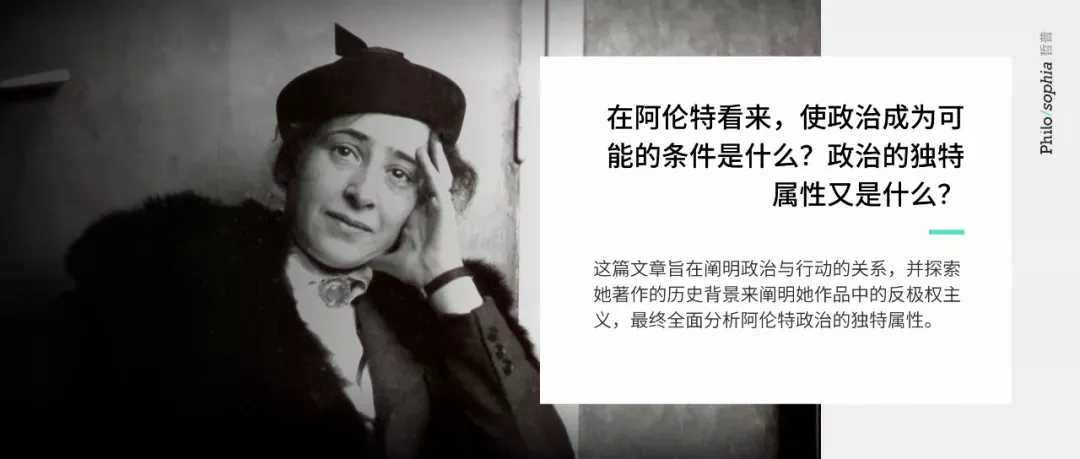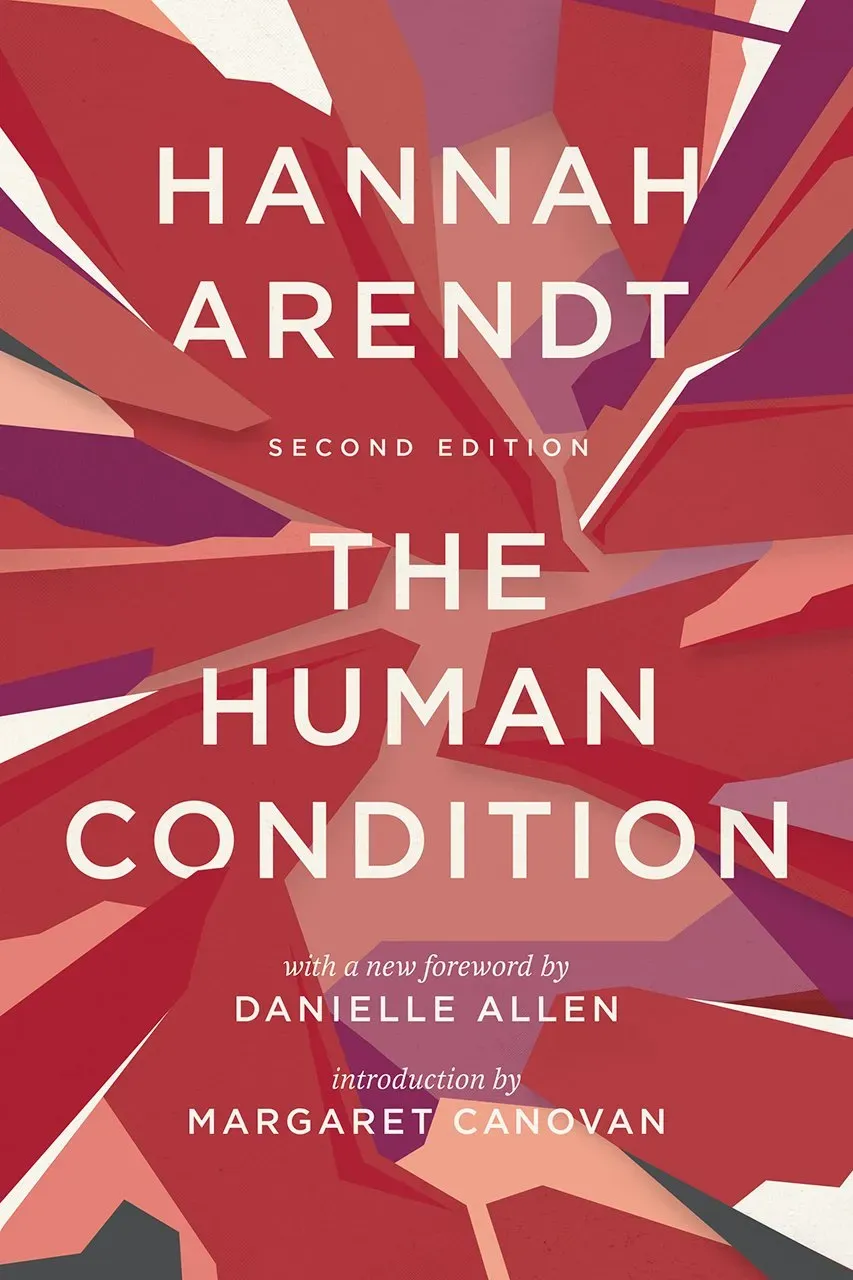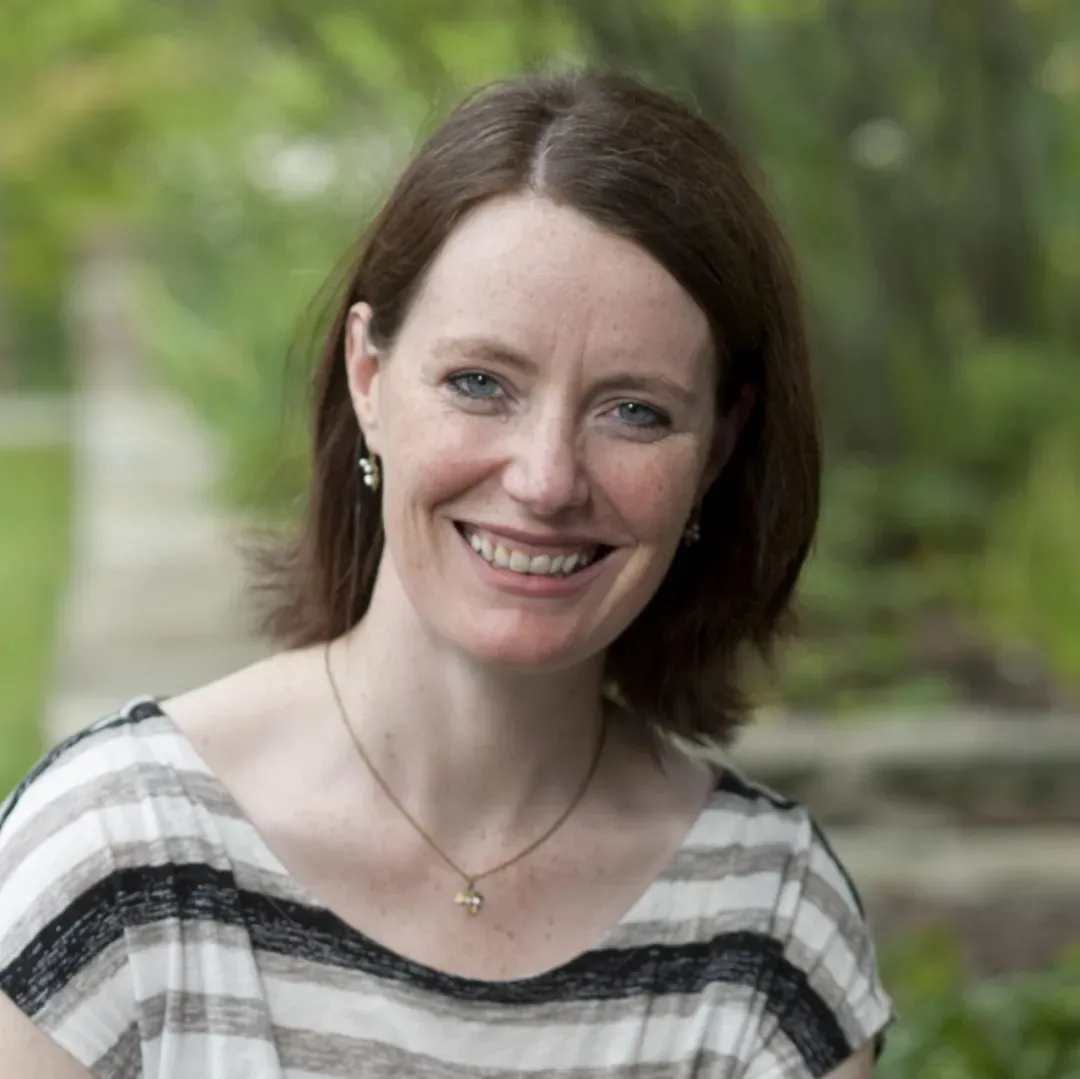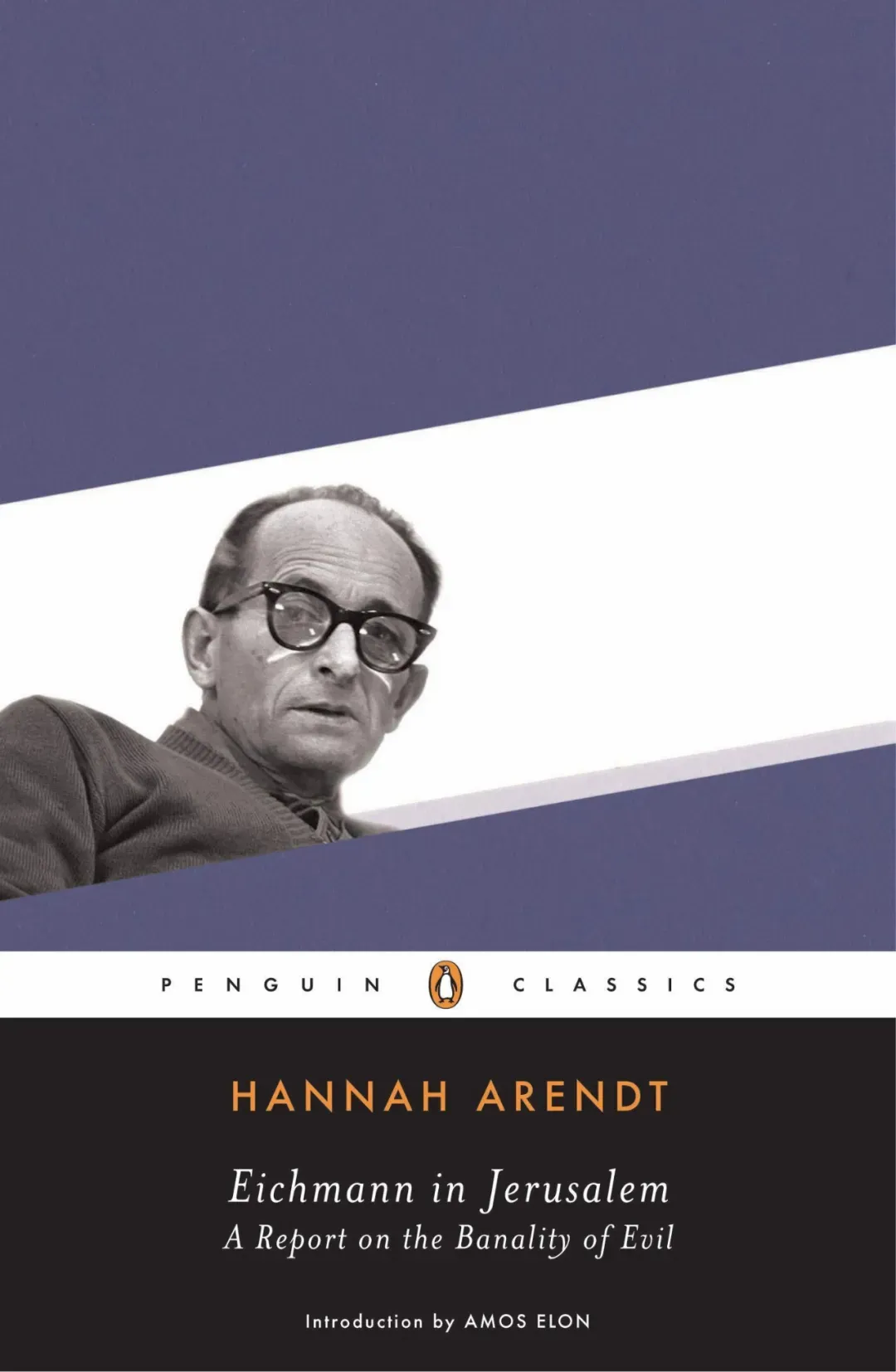
一个由青年主导的哲学社团。
The Politics of Hannah Arendt / Zapp

"This article was originally published on the public account philosophia on 2021.7.3"
Author / Wu Duan
1 Overview
Hannah Arendt's definition of politics can best be understood as the defense of human pluralism and naturalness, and against the totalitarian tendencies of modernity, which can only be fully understood by mastering her philosophical system at this point. Her politics depended on public liberties and mastery of necessity. It is unique in that it is spontaneous, expressive, and communicative, but also unpredictable, elusive, and vulnerable. In the first part of this essay, I will explain Arendt 's triadic theory of the human condition , then place her political ideas within it by articulating the relationship between politics and action, and finally outline its preconditions. In the second part, I will shed light on the anti-totalitarianism in her work by examining her methods and exploring the historical context of her work, making connections between her various works, and ultimately a comprehensive analysis of Arendt's politics unique properties .
2 Preconditions for the possibility of politics
In The Human Condition, Arendt argues that the human condition is tripartite, including labor, work, and action. Since politics depends on human diversity, although naturalness is a "core category of political thought," politics is most closely related to the field of action. [1]
Labor corresponds to the biological dimension of human existence, including endless repetitive production and consumption. [2] In the field of labor, humans are animal laborans whose conception of time follows the cyclical rhythms of nature, as they chase endless cycles of necessity like animals. [3] However, what distinguishes human existence from animals is the “linear process of its movement” [4], which runs through the “circular movement of biological life”, and this linearity is reflected in the unique field of human work and action. [5] In the realm of "work", human beings are homo fabers: "builders of the world and producers of things", able to harness nature to produce man-made objects that outlast nature's cycles of consumption; therefore, in In "work", humans can show the difference between themselves and animals. [6] However, the product of "work" acquires a linear life alienated and external to the producer, so that "work" is artificial, but not entirely human. It is only in the field of "action" that human beings can claim their individual identity among their fellows through "action and speech": "work" attests to the collective greatness of human creativity, while "action" allows for diversity, the uniqueness of human beings Sex, rather than collective "humanity," allows individual stories to be told. [7] More importantly, by allowing uniqueness in pluralism, "action" realizes "the natural condition of human beings", which means that it is through words and deeds that everyone is able to take unexpected actions, with spontaneity, And bring something "unique new" to the world . [8]
"Action" captures the immediacy, dynamism, and spontaneity of human existence, which is the cornerstone of politics and which is largely absent in labor and work. [9] Although politics cannot be separated from labor (subsistence) or work (man-made), only action is the essence of political activity, and Arendt does not clearly distinguish between politics and action in The Human Condition, which can be said to reflect them close in concept. [10] As pointed out by Andrew Norris, a professor of political science at the University of Pennsylvania, it is in political action that people assert their public identities and, in the process, associate themselves with other human beings, thereby giving meaning to “being human.” [11] Furthermore, it is only in action that power arises: for Arendt, the realization of power is possible "only where words and deeds are not separated, words are not empty, and deeds are not rude", that is, when When words and deeds are ends in themselves; power is a dynamic potential that emerges between people "when they act together" and "disappears when they disperse" . [12] Arendt makes a distinction between violence and power: violence is instrumental and cannot acquire any political legitimacy by itself, while power arises from collective action and is the fundamental source of legitimacy. [13] This challenged Weber's "teleological" framework - Weber believed that violence (coercion) was at the heart of politics because it was an essential tool to achieve political goals. In this regard, she proposes another "communicative" framework that emphasizes collective agreement and solidarity. [14]

In The Human Condition, Arendt asserts that, understood in the ancient Greek sense, politics is essentially action and speech,[15] whose precondition is freedom. Freedom requires an open public space on the one hand, and a private family with necessities on the other. [16] Freedom in the ancient sense meant both freedom from necessity and freedom to associate with equal companions,[17] which was necessary for politics because the former removed man from labor dimension that enables one to engage in action. In Politics and Freedom, Arendt argues that "you can't talk about politics without talking about freedom," emphasizing the latter, saying that freedom is "the freedom to conjure up something that didn't exist before." The public sphere is a prerequisite for freedom of association with peers, as it is an arena that allows people to be "seen and heard by others" and allows "innumerable viewpoints and aspects" to illustrate "one common world"; in other words In other words, it is the embodiment of human diversity, meaning publicity and diversity, and naturalness (action) is only possible where there is diversity. [18] The public sphere, in turn, requires the existence of a secret private sphere, which Arendt equates with private property [19], since on the one hand the ancient private sphere, the home, is where one's necessities are managed (through the domination of women and slaves), without which man cannot transcend labor into the common world of freedom. On the other hand, in a more metaphysical and less brutal sense, it is only from the private sphere that one can "rise into sight", into the public sphere. Without the private sphere to shield people from endless propaganda, not only would life be "shallow", but the meaning of the public itself would be lost. [20]
Arendt's thesis on politics, as Patricia Owens, professor of international relations at the University of Oxford, puts it, is "mainly constructed through negation"[21] and is best viewed as a critique of modern politics or modernity . Her treatment of politics in The Human Condition is uniquely elusive and metaphysical, not only because it is rooted in a holistic philosophical analysis of the human condition, but also because of her uniquely etymological approach. Instead of defining politics, she explores the ancient Greek, Roman, and ecclesiastical origins and applications of various terms related to politics; instead of using history as an example, she tends to analyze political life (bios politikos) and The meaning behind the change in meaning of active living (vita activa) . This is mainly because, as the political theorist Sheldon Walling puts it, she intends to retrieve the "great political theories of the past" lost in the modernization process to "illuminate the dilemma of the present"[22]. Although she did not want to get back "Pericles-like democracy" or "Homer's epic rallies", as he put it.[23] In the preface to The Human Condition, she claims that she does not intend to "provide an answer" or engage in "actual politics", but rather to reconsider the human condition "from the vantage point of our latest experiences and our recent fears" status [24]. She articulates her political concept through an "idealized description of the ancient Greek polity"[25]—Wolin is right to criticize her for "distorting history"[26], but she focuses on the inadequacies and contingency of the modern political world , not history itself. Her description of politics reflects more on what is lacking in modern politics than what really pre-exists in history.

Her critique of modern politics (and of modernity itself more generally) is best exemplified in her critique of Hobbes, Marx, and Weber: for her, the mistake of modernity is to put work Attribution to labor and action to work, and these two mistakes are often interrelated. Arendt argues that Hobbes' conception of politics is based on the wrongful conquest of "society" by politics: what Hobbes' politics protects, she claims, is a society of ruthless acquirers. [27] He ignored the crucial "public and private" distinction, made public affairs related to "sustaining life", and thus turned politics into administration for conservation, by building a great interest through work Vitan, making action subservient to labor. [28] As a result, active politics was replaced by the work of rationalistic, instrumental craftsmen. [29]
Likewise, Marx was a product of the subordination of politics to society: in Arendt's view, the statement that politics was merely a reflection of the interests of society itself embodied the "unnatural growth" of the family (natural-labor); and Marx himself lived In the post-Hobbes modernity, the public sphere has "withered away" and has become the administration. [30] Furthermore, Marx subsumed work under labor and advocated emancipation from labor (necessity) through the development of productive forces and production methods, the result was not liberation, but the disintegration of time-honored work skills In the consumption cycle, because mass production only creates more greed. [31] In Arendt's view, Marx's modernity is the governance of a consumerist society .
Her critique of Weber is less direct—but, in her critique of bureaucracy "as the most socialized form of government"[32], and of the instrumentality of violence that lurks in the minds of "craftsmen" [33], Weber's description of modern politics characterized by the state's monopoly on legal violence and bureaucracy is clearly the object of reference. [34] In short, for Arendt, the fundamentally human dimensions of spontaneity and pluralism are absent from the conceptions of politics by these three philosophers (and by extension in modern politics in general).
3 Distinctive attributes of Arendt politics
Arendt's renewed emphasis on diversity and naturalness, as well as her critique of modern politics, can be said to stem from her reflections on totalitarianism. She experienced Nazism firsthand and observed the horrors of Stalinism, two of the most heinous and inhuman political systems in modern society. Her writings are never short of skepticism about the modern philosophy that makes this horror machine possible. In The Origins of Totalitarianism, she argues, it is the destruction of the possibility of any action and the annihilation of human diversity by tying all together into "One Man of gigantic dimensions" , which distinguishes totalitarian terror from general tyranny. [35] Thus, the danger of totalitarianism is not limited to its cruelty, since it not only destroys the human body, but also extinguishes the possibility of public identity by preventing human interaction and spontaneity, thereby making every Individuals can be replaced and destroyed, and in doing so deny the humanity of the human individual. [36] And in Eichmann in Jerusalem, she argues that the core of the mass murder was the abandonment of personal autonomy and conscience by those in the Nazi bureaucracy—perpetrators of totalitarian terror were often those who refused to think and act A "horribly normal" person, not a sadist. [37] What she diagnoses as lacking in totalitarianism in The Origins of Totalitarianism is the very essence of politics that she affirms in The Human Condition, so it can be said that her conception of politics is fundamentally antithetical totalitarian. [38][39]

However, this implicit anti-totalitarianism also limits and weakens her conception of politics. On the one hand, in rejecting the inhuman totalitarian tendencies lurking in the modern world, her historical narratives tend to ignore the reasons behind "the rise of society", and she fails to address the vexing ancient paradox of making some People engaged in action, others had to be violently banished to private households and subjected to ruthless labor. John Levi Martin, professor of sociology at the University of Chicago, rightly points out that it is surprising that Arendt "knowingly took her conceptual device from a slave society" [40]. And, it can also be said that the modernity captured by the theories of Hobbes and Marx can also be seen as a rebellion against the exclusivity and cruel ancient freedom of the few, by liberating the many from the sphere of labor . On the other hand, Arendt's politics, as Wolin critiques, often appears too "pure" because it is essentially detached from economic motives and social purposes, close to the realm of aesthetics, and thus often appears impoverished. [41] Political action in reality is difficult to separate from social or economic purposes: political protests usually involve certain socioeconomic issues, and even political discussions must involve something. If public engagement/action itself does not address any broader socioeconomic issues, but is merely concerned with expression, it is questionable whether such action would have value. Norris accurately points out that her praise for public action itself makes public moral judgments difficult, which in itself can be dangerous. [42]
While Arendt's philosophical system is inherently anti-totalitarian, her political philosophy, as an attempt to protect the human element that totalitarianism and modernity seeks to destroy, is unique, spontaneous, expressive, communicative. In Arendt's view, politics or action is ontologically necessary because it allows one to transcend the Heideggerian despair of "living to death", as the common public rescues the individual from isolated death , while spontaneous action, along with potentially immortal words, can interrupt the cycle of destruction by "starting something new." [43] In her own words, "Politics and Action" reminds us that "people, though they must die, are not born to die, but to be born", because it allows individuals to express them through the stories of the human world of human dignity. [44] Despite the fragile and ephemeral nature of their biological lives, action rejects the totalitarian tendencies to reduce individuals to substitutable parts.
Furthermore, although this is not consistently articulated in The Human Condition and is often overlooked, the shared political world and discourse as a political act is crucial to the ability to "think and talk about what we can do" connection - and this ability is the antiidea for totalitarianism without thought. [45] It can be argued that the fundamental human element retained by politics or action is public sphere-oriented thinking (as opposed to self-oriented personal contemplation), whereas the ability to think independently about a common objective world is a prerequisite for conscience Conditions that enable people to make moral judgments that distinguish right from wrong, even under totalitarian conditions, when everything is consumed by despair and everyone is isolated by tyranny. [46] It is true that her political ideas are also unpredictable, elusive and fragile, because people cannot know the consequences of spontaneous and pluralistic actions, and the purity of "action" itself makes it difficult to be independent of other things exist. [47] Yet it is this elusive expression of the fragile dimension of the human condition that distinguishes humans from tools and gives them a certain dignity that may “prevent disaster in rare pinch”. [48]
4 Conclusion
In sum, for Arendt, politics is the expression of an individual's public identity through spontaneous speech and action, which reaffirms human dignity. Although this kind of politics is only possible if a public sphere is established and individual needs are met, and an elusive and fragile form of expression, it is a fundamental condition of human nature. Without it, humanity could easily fall into dehumanizing totalitarianism. /
Notes and References:
[1] Hannah Arendt, The human condition, 2nd ed. (Chicago, IL: University of Chicago Press, 1998). 7-9
[2] ibid, 96-99
[3] ibid, 160
[4] ibid, 18-19.
[5] Arendt in 3 talks about the life story of individuals and distinguishes eternity(Cyclical) from immortality(linear), which I assume distinguishes the natural/animal from the human. But here she also talks about the life story of individuals, which only corresponds to the domain of action, and I do not quite know where does Work fits in here: it is obviously distinctively human and linear, but it is almost linear on a collective rather than individual scale. Could we maybe discuss this in supervision?
[6] Arendt, The Human Condition, 137-140, 154-160.
[7] ibid, 19, 176-179.
[8] ibid, 178-179
[9] This aspect of human existence described by Arendt reveals much influence by Heidegger's theory of time captured in Nature, History and State, I really do not know whether I have done it justice but I should be able to unpack it more if necessary in supervision.
[10] Arendt, The Human Condition, 8-9
[11] Andrew Norris, 'On public action: rhetoric, opinion and glory in Hannah Arendt's The human condition', Critical Horizons, vol. 14, no. 2 (2013), 212-213.
[12] Arendt, The Human Condition, 199-200
[13] Hannah Arendt. On Revolution. Pelican Books. Harmondsworth: Penguin, 1973. 81-82.
[14] Jürgen Habermas, 'Hannah Arendt's communications concept of power', Social Research, vol. 44, no 1 (1977) , 3-6
[15] To be sure, Arendt did not clearly define politics in THC for the most part of it but instead resorted to exploring ancient notions and etymology, which I will discuss later in the essay
[16] Arendt, The Human Condition, 30-32
[17] ibid, 31-33
[18] ibid, 56-58.
[19] not private wealth
[20] Arendt, The Human Condition, 60-72
[21] Patricia Owens, 'Hannah Arendt: violence and the inescapable fact of humanity', in Hannah Arendt and international relations, Anthony F. Lang and John Williams, eds. (New York, NY: Palgrave Macmillan, 2005), 50- 51.
[22] Sheldon S. Wolin, Fugitive democracy: and other essays, Nicholas Xenos, ed. (Princeton, NJ: Princeton University Press, 2016), 251-255
[23] Arendt, The Human Condition, 239-240.
[24] ibid, 4-5
[25] Norris, 202-204
[26] Wolin, 240.
[27] Arendt, The Human Condition, 31
[28] Hannah Arendt, 'Politics and Freedom', in Hannah Arendt, Thinking without a bannister: essays in understanding 1953–1975, Jerome Kohn, ed. (New York, NY: Schocken Books, 2018). 246-250.
[29] Arendt, The Human Condition, 299-300
[30] ibid, 76-80.
[31] ibid, 131-133.
[32] ibid, 40.
[33] ibid, 156-157
[34] Max Weber, “The Profession and Vocation of Politics” in Weber, Political Writings, ed. Peter Lassman and Ronald Speirs (Cambridge: Cambridge University Press, 1994), 310-313
[35] Hannah Arendt, The Origins of Totalitarianism. 2nd ed. London: Allen & Unwin, 1958. 609-611
[36] Arendt, Origins of Totalitarianism, 612-615; Politics and Freedom, 267
[37] Hannah Arendt. Eichmann in Jerusalem : A Report on the Banality of Evil. Penguin Classics. New York, NY: Penguin Books, 2006. 276-279. [38] To be sure, the notion of totalitarianism is not very accurate in historical analyses of the Nazi regime or Stalinism, but her theoretical analyses of totalitarianism still stands, and the relationship between her analyses of totalitarianism and her notion of politics/human condition remains a fundamental one.
[39] However, it is worth noting that in THC, her definition of totalitarianism expanded to refer more broadly to the deprivation of human identity and the common world, thus of the ability to act and think, which may eventually lead to murderous rule and utmost inhumanity. (THC, 3-5)
[40] John Levi Martin, “The Human Condition and the Theory of Action” in Philip Baehr and Philip Walsh. eds., The Anthem companion to Hannah Arendt (London: Anthem Press). 68
[41] Wolin, 245-247.
[42] Norris, 215-218.
[43] Arendt, The Human Condition. 245-247.
[44] ibid, 246.
[45] ibid, 2-3.
[46] Hannah Arendt, Responsibility and Judgment. New York: Schocken Books, 2003. 189-192.
[1] Arendt, Hannah. The human condition, 2nd ed. (Chicago, IL: University of Chicago Press, 1998).
[2] Arendt, Hannah. On Revolution. Pelican Books. Harmondsworth: Penguin, 1973.
[3] Arendt, Hannah, and Jerome. Kohn. Responsibility and Judgment. New York: Schocken Books, 2003.
[4] Arendt, Hannah. Thinking without a bannister: essays in understanding 1953–1975, Jerome Kohn, ed. (New York, NY: Schocken Books, 2018).
[5] Arendt, Hannah. Eichmann in Jerusalem : A Report on the Banality of Evil. Penguin Classics. New York, NY: Penguin Books, 2006.
[6] Arendt, Hannah, . The Origins of Totalitarianism. 2nd ed. London: Allen & Unwin, 1958.
[7] Baehr, Philip and Philip Walsh. eds., The Anthem companion to Hannah Arendt (London: Anthem Press).
[8] Canovan, Margaret. 'Introduction' to Hannah Arendt, The human condition (Chicago, IL: University of Chicago Press, 1998)
[9] Habermas, Jürgen. 'Hannah Arendt's communications concept of power', Social Research, vol. 44, no 1 (1977), pp. 3-24
[10] Owens, Patricia 'Hannah Arendt: violence and the inescapable fact of humanity', in Hannah Arendt and international relations, Anthony F. Lang and John Williams, eds. (New York, NY: Palgrave Macmillan, 2005), pp. 41-65.
[11] Weber, Max. “The Profession and Vocation of Politics” in Weber, Political Writings, ed. Peter Lassman and Ronald Speirs (Cambridge: Cambridge University Press, 1994)
[12] Wolin, Sheldon S. Fugitive democracy: and other essays, Nicholas Xenos, ed. (Princeton, NJ: Princeton University Press, 2016).


Like my work?
Don't forget to support or like, so I know you are with me..
Comment…